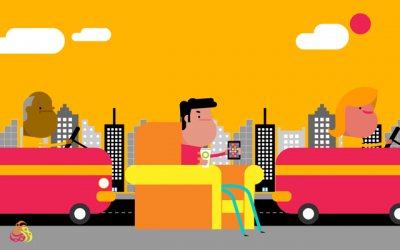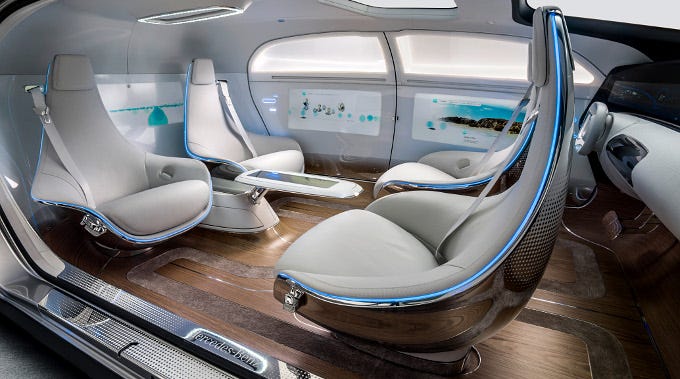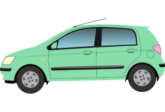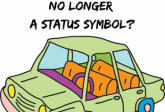Millennials And Cars – No Longer The Status Symbol!

This is a guest article by Laura Dinneen, a leader of “Millennials and cars” panel at Hark by Bloom Worldwide. She is also a Research and Insight Partner at Different Spin.
I have a confession.
I am 31 years old and I can’t drive. I don’t have a car, I don’t have a driving licence. I’ve never had a driving lesson.
The closest I’ve got is stalling an old boyfriend’s Golf in Tesco car park. Or maybe that time I went go-karting. Or my vast experience playing Mario Kart. Suffice to say, I should not be allowed behind the wheel.
Now I’m at a stage where I could comfortably afford to learn to drive, I just don’t want to. To be honest, the thought scares me. Maybe I have left it too late and I’m now too risk averse. But if the necessity was there I’m sure I could get over it.
The truth is, I don’t feel the necessity. I don’t feel like I’m missing out, apart from the rare occasion when I think it would be a great idea to go to a safari park. That’s probably a really bad idea without a car.
Ambivalent as I am about personally driving, I am equally as passionate about technology and innovation. I have been working with amazing clients in the automotive sector for the last four years and have been amazed at the developments in engineering and technology that have happened in that short time.
One of the things I wanted to find out whilst leading Different Spin’s latest research project was whether as a Millennial I am alone in my ambivalence to driving and, if not, what this means for the future of mobility.
The research, which has just been released and is available to download for free from the Different Spin website, found that Millennials have a very different attitude to driving, cars and transportation than previous generations at the same age.
Are Millennials driving less?
In short, yes. Not only are UK Millennials driving less, they are buying fewer cars, taking fewer trips as driver and passenger, and are more resistant to getting their driving license than previous generations.
Here are some of the numbers:
- Since 1997, the average number of car, van or motorbike trips made by drivers aged 17-29 has fallen by 42%
- Trips as a passenger are also declining, with 25% fewer journeys being made by 17-29 year-old car, van or motorbike passengers since 1997
- Personal car ownership is falling approximately 1% year on year for 17-29 year olds. In 2007, 42% of this age group owned a car where they were the main driver. This has now fallen to 36%.
- The percentage of Millennials that do not own a car has been increasing since 2009, rising from 28% of carless Millennials to 40% in Q3 2015.
- The proportion of 17-20 year olds with a full driving licence has fallen from 48% in 1994 to 29% in 2014. The trend is similar for older Millennials too, although not as pronounced, falling from 75% in 1994 to 63% in 2014 for 21-29 year olds.
So why is this happening?
Financial pressure is the number one barrier to Millennials driving as much as their parents. Not only are they facing post-credit crunch, post-university fees, post-move to the city to find a job financial pressures, they also lead much more uncertain lives than previous generations. Even if they love driving (and I’m not saying that all Millennials hate driving – just that they don’t do it as much), the financial burden of buying a car in the first place but even worse, the running costs, mean that UK Millennials right now are turning to alternative transportation options.
So whilst learning to rely on alternatives, and as those alternative options increase with the likes of Uber, Hailo, car pooling systems, short-term car rental clubs, all available in their pockets through phone apps, the necessity to own a car fades into the middle distance.
Cost and the rise of alternative transportation and driving options that ride the wave of the sharing or collaborative economy are the top practical reasons cited by UK Millennials for not owning a car, but there is also a shift in attitude. Owning a flash car is no longer the status symbol it once was. Now, there are other status symbols fighting for Millennials’ savings – the latest phone, laptop, headphones. And whilst a car used to be seen as a symbol of freedom, today’s Millennials can’t get away from seeing it as a financial burden.
Millennials and cars: what is the future of the automotive industry?
The next generation of car buyers will still play a big role for the automotive industry, just not in the same way as their parents. The Spotify and Netflix generation are as comfortable sharing and subscribing to their driving options ads they are to their entertainment. Smart automotive manufacturers will need to place equal emphasis on monetising services as they will innovating their product range.
We can expect to see an even bigger increase in car sharing services, whether as a driver (like City Car Club, BMW DriveNow or ZipCar) or passenger (Uber, Hailo, Bla Bla Car). We should also see different ways to purchase cars, based more on leasing or subscription models, and we should see big innovations in the autonomous/driverless shared car infrastructure.
There will always be Millennials that want to drive for the sheer pleasure and convenience of it, but as Elon Musk recently said, owning a non-autonomous car will soon be like “owning a horse”.
What do you think? Does this ring true for you? Do you have a completely different perspective? If you’d like to get involved in this conversation, I invite Lucky Attitude readers to become a member of Hark, our online opinion and innovation network for trailblazers who care deeply about how the world is changing. It’s a free and simple signup, so please come and join our “Millennials and cars” panel.






